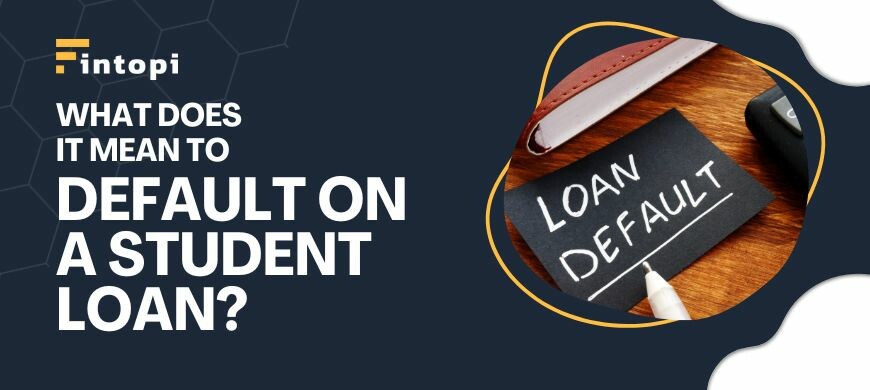What Happens When You Default on a Student Loan?
Student loans are a common way for individuals to finance their education. However, sometimes unforeseen circumstances can make it difficult to repay these loans. Defaulting on a student loan is a reality that many borrowers face.
This article will explore the consequences of defaulting on a student loan and provide information for borrowers who may be struggling with their student loan payments.
What Does it Mean to Default on a Student Loan?
Defaulting on a student loan means the borrower was unable to make payments in accordance with the loan’s terms. The exact definition of default may differ based on the loan type, but generally, it means not making payments for a certain number of months.
This failure to pay can have significant consequences, such as damaging one’s credit score and triggering wage garnishment or tax refund interception. Therefore, it’s crucial for borrowers to take action early if they are struggling to make their payments.
The Consequences of Student Loan Default
The consequences of defaulting on a student loan can be severe and long-lasting. Here are some of the potential consequences you may face:
- In the future, you may have a more difficult time obtaining loans if your credit score drops.
- You may be subject to wage garnishment, which means that a portion of your wages will be automatically deducted to repay your loan.
- In order to repay your loan, the IRS may withhold money from your tax refund.
- A collection agency may be given control of your debt, increasing the amount you owe through interest and collecting costs.
- If you have a student loan in default, you may lose your professional license.
- You may be sued for the amount you owe, which can result in a court judgment against you.
- Defaulting on a federal student loan can also result in the loss of eligibility for further financial aid.
The Reality of Student Loan Default
The reality of student loan default is that it can have a significant impact on your financial future. Defaulting on a student loan can make it difficult to obtain credit, purchase a home, or even get a job.
Many borrowers who default on their student loans find themselves in a cycle of debt that can be difficult to break out of. Therefore, it’s important to take action early if you’re struggling to make your payments to avoid the negative consequences of default.
What You Can Do If You’re Struggling to Make Your Payments
If you’re struggling to make your student loan payments, there are several options available to you:
- Consider enrolling in an income-driven repayment plan if you are struggling to make your payments.
- Apply for deferment or forbearance if you are experiencing financial hardship or other circumstances that make it difficult to make your payments.
- Contact your loan servicer if you are having trouble making your payments to discuss your options.
Conclusion
Defaulting on a student loan can lead to significant and lasting consequences. However, there are ways to prevent default. If you are having trouble making your payments, it’s crucial to reach out to your loan servicer as soon as possible to explore your options.
Moreover, by taking action early, you can avoid the negative impact of defaulting on your loan and work towards a more positive financial future. Remember that there are resources available to help you navigate your student loan repayment.
FAQs
1. Can private student loans be discharged in bankruptcy?
Private student loans are not typically dischargeable in bankruptcy. However, there are some exceptions, such as if you can prove undue hardship.
2. Can you settle a defaulted student loan?
It is possible to settle a defaulted student loan, but it can be difficult. Therefore, you will need to negotiate with your lender to come to an agreement on a settlement amount.
3. How long does it take to rehabilitate a defaulted student loan?
The rehabilitation process for a defaulted student loan takes nine months. During this time, you will need to make nine consecutive, on-time payments to bring your loan out of default.



